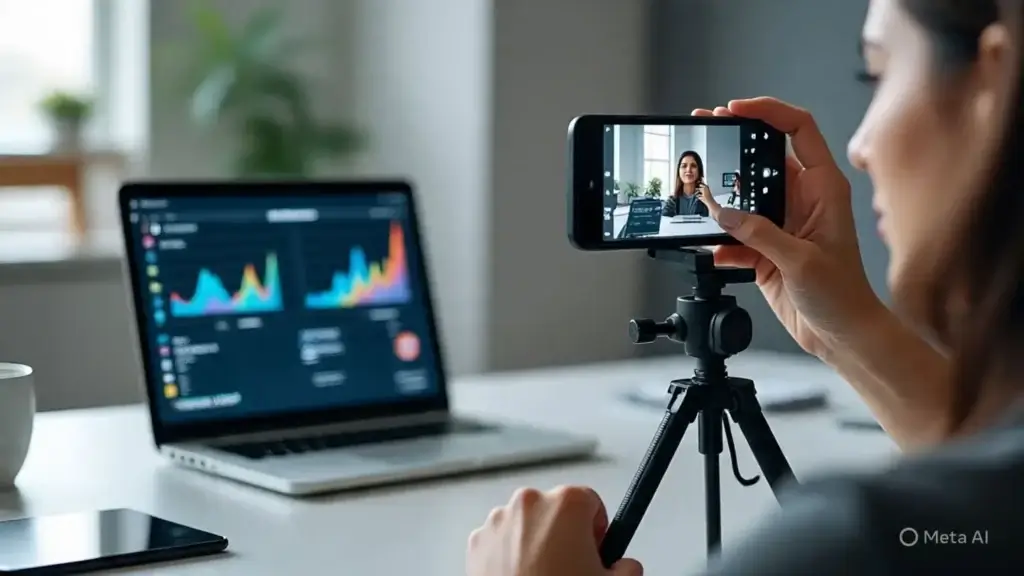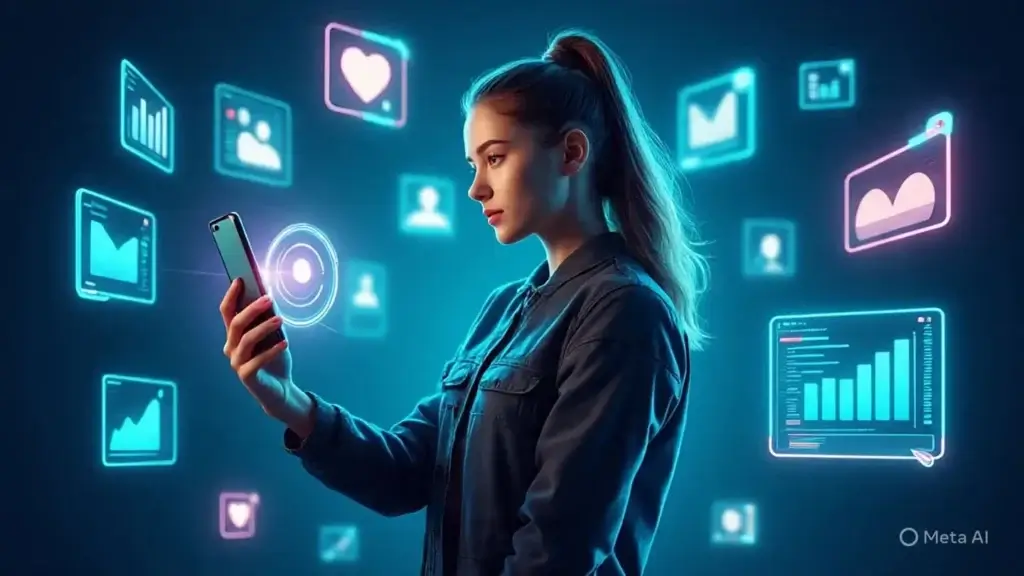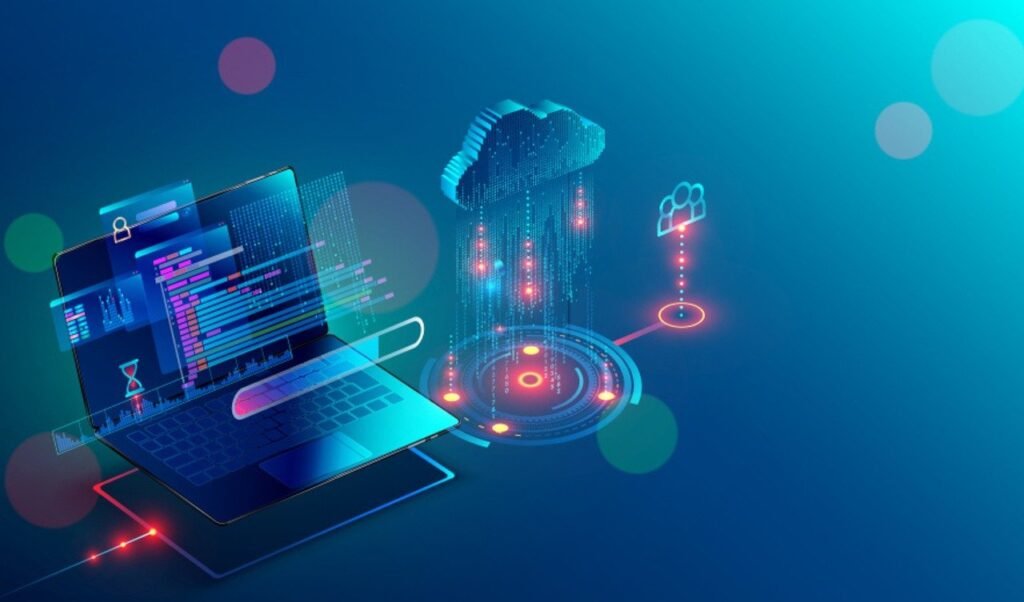
🔍 Introduction
What if you could scale influencer content 10–20×, generate billions of impressions, and still maintain authenticity? That’s exactly what AI-Enhanced Influencer Marketing delivers—by combining automation, predictive analytics, and creator storytelling. In this guide, you’ll learn:
-
How brands like Unilever, Puma, and Glossier are using AI for massive impact
-
The best AI tools: NVIDIA Omniverse, Gen-AI Studios, BrandDNAi, and more
-
A step-by-step playbook for execution
-
How to avoid the authenticity trap
-
Future trends: AI avatars, Gen Z, and ethics in AI
Let’s dive into the smarter, faster, and more personalized future of influencer marketing.
📘 What Is AI-Enhanced Influencer Marketing?
AI-Enhanced Influencer Marketing leverages artificial intelligence to identify optimal creators, automate content creation, personalize campaigns, and predict performance—enabling scalable, high-impact influencer strategies across various platforms.
It bridges efficiency with empathy, combining data-driven automation and human creativity to drive trust and ROI.
🚧 The Problem with Traditional Influencer Campaigns

Before AI, brands faced serious limitations:
-
Expensive and slow content creation
-
Difficulty in scaling across regions and formats
-
Inconsistent tone, compliance, and personalization
-
Fraud, fake followers, and a guessing game influencer picks
AI fixes this with automation, accuracy, and real-time optimization.
🔧 AI Tools That Power Next-Gen Influencer Campaigns
1. Digital Twins + NVIDIA Omniverse
Ultra-realistic, multilingual 3D product models:
-
Cut the photoshoot time by half
-
Enable cross-format asset remixing (TikTok, Reels, Shorts)
-
Maintain brand consistency globally
-
Used by: Unilever, Dove
Example: Unilever created digital twins of body-care SKUs for its Dove launch, leading to 3.5B+ impressions.
2. Gen-AI Content Studios
AI-powered content factories to generate and remix creative:
-
400+ assets per product
-
Auto-adaptation for formats and platforms
-
30% faster content production
-
Better CTRs and video completion
Glossier used mid-tier creators and Gen-AI tools to drive a 12% sales uplift.
3. AI Governance: BrandDNAi & Compliance Layers
-
Embeds tone, packaging, legal, and cultural rules
-
Prevents off-brand or non-compliant outputs
-
Maintains authenticity at scale
Little Spoon saved 22% in customer acquisition costs using AI with built-in compliance tools.
4. AI Creator Discovery & Performance Forecasting
Tools like Vidooly, Hypothesis, Brandwatch, and Persado help you:
-
Identify best-fit creators
-
Predict campaign performance
-
Detect audience sentiment shifts and fraud
Puma shifted to micro-creators using AI, achieving 53% higher ROI.
📊 Case Study: Unilever’s AI-Driven Influencer Playbook
🎯 Objective:
Launch Dove’s body-care line using AI-powered influencer content with personalization and scale.
🧠 Execution:
-
Created 3D digital twins of SKUs using NVIDIA Omniverse
-
Generated 400+ assets per SKU via Gen-AI Studio
-
Used BrandDNAi for global compliance
-
AI-forecasted creator performance with Playwire & Hypothesis
📈 Results:
| Metric | Outcome |
|---|---|
| Impressions | 3.5 Billion+ |
| New Buyers | 52% were new to the brand |
| Creative Production Speed | 30% faster |
| CTR & Video Engagement | 2× higher |
| Content Scale | 10–20× increase |
✅ Step-by-Step Framework to Launch AI-Enhanced Influencer Marketing
1. Define Goals
-
Impressions? Engagement? New buyers?
-
Use incrementality testing (not just last-click)
2. Establish Governance
-
Tone, packaging, disclaimers
-
Input into BrandDNAi or similar compliance AI
3. Create Product Digital Twins
-
Use NVIDIA Omniverse or Unity
-
Reuse across formats: Stories, Shorts, Reels
4. Discover and Vet Creators
-
Use AI to evaluate fit, engagement rate, and sentiment
-
Blend macro + micro influencers
5. Generate & Remix Creative Variants
-
50–400 assets per product
-
Adapt for different platforms and languages
6. Optimize in Real-Time
-
Let AI test, select, and evolve content based on live data
7. Measure & Scale
-
Track lift via A/B tests, holdouts, and performance dashboards
⚠️ Pitfall to Watch: The Authenticity Risk
What Can Go Wrong?
-
Overuse of AI avatars or fake-sounding copy
-
Lack of transparency about AI-generated content
-
Cultural tone-deafness or legal missteps
How to Stay Human:
-
Clearly label AI-generated or AI-assisted content
-
Use real creators for key storytelling moments
-
Always embed governance (e.g., BrandDNAi, GDPR, bias checks)
⚠️ 37% of consumers say AI influencers reduce trust. Transparency is non-negotiable.
🔮 Future Trends: What’s Next for AI in Influencer Marketing?
-
AI Avatars Rise: TikTok’s Symphony, India’s Radhika Subramaniam show the potential of virtual influencers
-
Gen Z Acceptance: 46% more open to AI influencers than older generations
-
Micro-Influencer Boom: AI enables hyper-targeting with lower costs and higher ROI
-
Voice & Video Cloning: Tools like Respeecher allow local-language personalization
-
Ethical AI Mandates: Expect growing regulation and consumer demand for transparency
🙋♂️ FAQs (Schema-Optimized)
Q1: Can AI replace human influencers?
No. It enhances scale and targeting, but humans remain essential for trust and emotional connection.
Q2: What are the best tools for AI influencer marketing?
NVIDIA Omniverse, Gen-AI Studios, BrandDNAi, Vidooly, Brandwatch, Predis.ai
Q3: How do I measure success?
Track CTR, impressions, new customer lift, engagement duration, and cost per asset.
Q4: Are virtual influencers effective?
Yes—when clearly labeled and used strategically. Not a replacement for real people.
Q5: Is AI-generated content cost-effective?
Absolutely. Digital twin content can be 60–70% cheaper than physical production.
✅ Conclusion
AI-Enhanced Influencer Marketing is transforming how brands scale, personalize, and perform.
By blending human creativity with AI efficiency, brands are launching campaigns that are faster, smarter, and more resonant—without compromising authenticity.
📣 What’s Your Take?
Which AI trend excites you the most—virtual influencers, Gen-AI content, or predictive discovery?
Share your thoughts, subscribe for more insights, or explore our next post on “Preparing for Generative Engine Optimization (GEO): The New Frontier in SEO”


